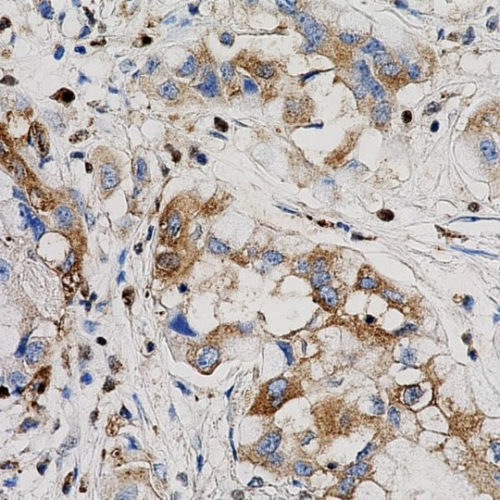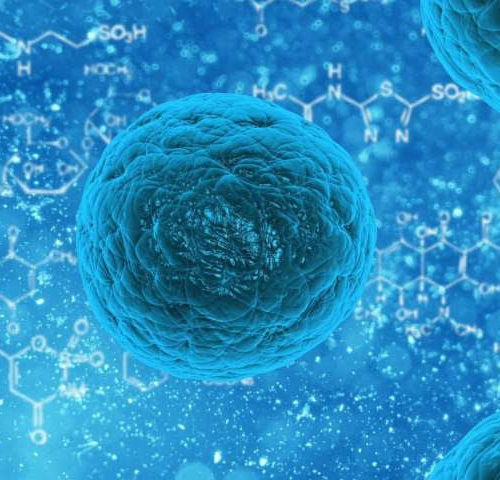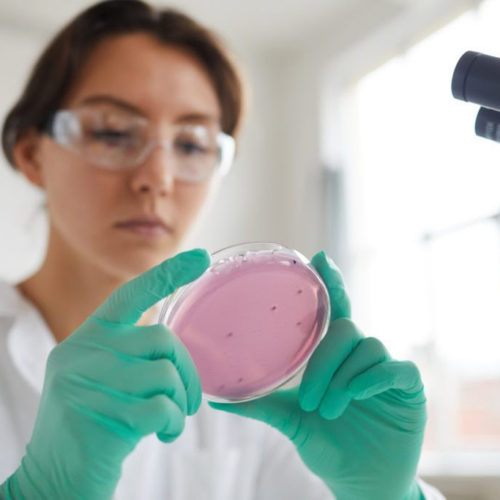Penn study shows GPER activation in mice can also make tumors more visible to immune system. Activating the G protein-coupled estrogen receptor (GPER) – a receptor found on the surface of many normal and cancer tissues – has been shown to stop pancreatic cancer from growing, but may also make tumors more visible to the...
Tag: <span>Cancer Therapy</span>
Preventing metastasis: An antibody with therapeutic potential
by German Cancer Research Center A receptor in the cell layer that lines the blood vessels from the inside stimulates both the formation of new blood vessels in tumors and metastasis. Scientists at the German Cancer Research Center in Heidelberg (DKFZ) and the Mannheim Medical Faculty of the University of Heidelberg have succeeded in blocking...
Gut bacteria may boost cancer therapy by colonizing tumors
A study in mice suggests that by infiltrating tumors and ramping up the body’s immune response, a type of gut bacteria could be a valuable ally in cancer treatment. New research suggests that Bifidobacteria could help fight off tumors. In recent years, research has shown that the communities of bacteria that live in our guts...
Light therapy for immune cells helps with side effects of cancer therapy
by University of Freiburg Only within the past few years has malignant melanoma been treatable with immunotherapy. However, in every second patient, strong autoimmune reactions such as skin rash or diarrhea occur after immunotherapy. Researchers from the Medical Center—University of Freiburg and Swiss colleagues have now shown that these reactions can be stopped with a...
Discovery of new T-cell raises prospect of ‘universal’ cancer therapy
by Cardiff University Researchers at Cardiff University have discovered a new type of killer T-cell that offers hope of a “one-size-fits-all” cancer therapy. T-cell therapies for cancer—where immune cellsare removed, modified and returned to the patient’s blood to seek and destroy cancer cells—are the latest paradigm in cancer treatments. The most widely used therapy, known...
Flipping the script on novel cancer therapy leads to insights into lupus
YALE UNIVERSITY In the last decade, scientists discovered that blocking a key regulator of the immune system helped unleash the body’s natural defenses against several forms of cancer, opening up a new era of cancer immunotherapy. Now Yale scientists have essentially flipped this script and found that when impaired a molecularly similar regulator can cause...
Genetic diversity facilitates cancer therapy
by Max Planck Society The constant battle against infectious pathogens has had a decisive influence on the human immune system over the course of our evolution. A key role in our adaptation to pathogens is played by HLA molecules. These proteins activate the immune system by presenting it with fragments of pathogens that have entered...
Scientists have identified the presence of cancer-suppressing cells in pancreatic cancer
by Nagoya University A research team led by Nagoya University has revealed that cells containing a protein called Meflin have a role in restraining the progression of pancreatic cancer, a type of cancer that is hard to treat with traditional anti-cancer drugs. The team has also shown that cancer progression can be limited by artificially...
Study finds increased risk of cancer death following treatment for hyperthyroidism
by National Cancer Institute Findings from a study of patients who received radioactive iodine (RAI) treatment for hyperthyroidism show an association between the dose of treatment and long-term risk of death from solid cancers, including breast cancer. The study, led by researchers at the National Cancer Institute (NCI), part of the National Institutes of Health, was published July...
Anti-CD47 cancer therapy safe, shows promise in small clinical trial
A novel immunotherapy appears safe for use in patients with a type of blood cancer called non-Hodgkin’s lymphoma, according to a phase-1 multicenter clinical trial led by a researcher at the Stanford University School of Medicine. Although some patients showed signs of a transitory anemia or reactions at the injection site, there were few other...



